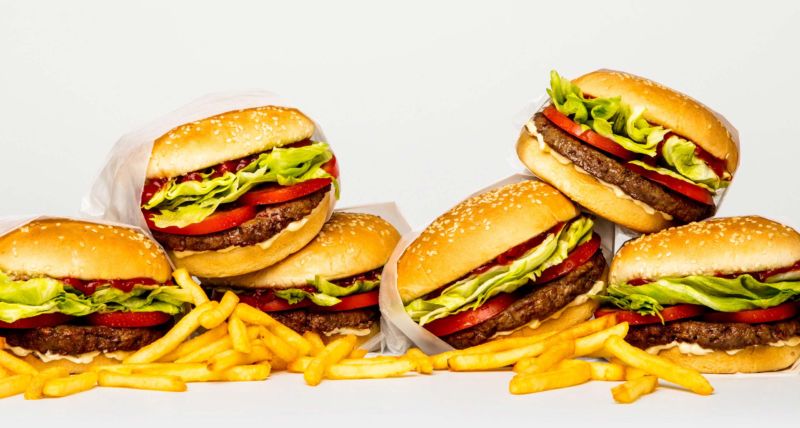
Plant-based meat alternatives are having a moment—from Burger King’s Impossible Whoppers, White Castle’s Impossible sliders, McDonald’s Beyond Meat PLT, and Subway’s Beyond Meatball Marinara, not to mention the growing shelf space for meatless-meat in grocery stores nationwide.
Though veggie burgers have been around for ages, the more meat-like generation of products has clearly piqued the appetite of the public. And that has another group—perhaps a surprising one—salivating over the profit potential: the meat industry.
Big names in meaty-meat products—including Tyson, Perdue, Hormel, Smithfield, and Nestlé—are all trying to get a cut of the fake and alternative-meat products world, according to The New York Times. Following the juicy success of Impossible Foods (with its Impossible Burgers) and Beyond Meat, meat producers have carved out their own plant-based versions of burgers, chicken nuggets, sausages, and more.
In April, Nestlé served up its “Awesome” burger, made with soy and wheat protein, plus extracts from beetroot, carrot, and bell pepper. Poultry purveyors Tyson and Perdue followed in June with their own plant-based and “blended” products. Tyson introduced plant-based nuggets and burgers, as well as sausage and meatballs made with both chicken and plant-based ingredients.
Perdue went a little further, introducing nuggets, patties, and tenders made with chicken, cauliflower, chickpeas, and plant protein. They called the new line CHICKEN PLUS™, that is, chicken with bonus “vegetable nutrients.” Some of the veggie-packed chicken nuggets come in dinosaur shapes.
In August, big pork producer Smithfield Foods announced an entire “portfolio” of plant-based meat and dairy alternatives. Lastly, Hormel—maker of Spam and Applegate meats—announced its own plant-based and blended products.
Plant-based beef
Overall, it’s unclear if the trend among meat makers is good or bad for the feisty fake-meat industry.
Many faux-meat fans—including CEOs of Impossible Foods and Beyond Meat—tout environmental benefits of ditching meat-eating, as well as animal-welfare issues and potential health benefits. But the Big Meat companies do not appear to be moved by any such noble motivations. A spokesperson for Tyson told the Times concisely: “Right now, it’s really about the business opportunity.”
And while some argue that meat-makers trying to get a stake in the market is a sign of success, others worry it could signal trouble ahead. There’s concern that the carnivorous industry could end up gobbling start-ups, co-opting marketing messages, and using plant-based products to divert attention from their less savory practices, the Times notes.
Such issues are a “legitimate concern,” Glenn Hurowitz, who runs the environmental advocacy organization Mighty Earth, told the Times. He noted that Big Oil companies spent years buying up clean-energy start-ups and essentially shut them down.
For now, Beyond and Impossible are doing just fine, expanding and coming up with new products. They’ve also fired up meat-lovers against the new products—a clear sign of their success. In June, Arby’s unveiled a meat-based carrot, or marrot, aimed at mocking plant-based meat. It’s unclear if the marrot will ever show up in any restaurants.
https://arstechnica.com/?p=1586087

